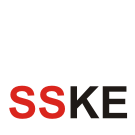From SSKE
(Created page with "Service does not refer to (the physical attributes of) a process output, but it is a transcendental term for the activity of doing something for the interest or benefit of somebo...") |
|||
| Line 1: | Line 1: | ||
| − | Service does not refer to (the physical attributes of) a process output, but it is a transcendental term for the activity of doing something for the interest or benefit of somebody else. Hence, service is a superordinate concept that includes both tangible and intangible goods (‘services’).Service is what is always exchanged, either in Direct Service interactions (services) or in Indirect Service interactions, through tangible goods (products). Self-service for instance, that is the application of resources by the beneficiary entity for itself, can be considered a special kind of Direct Service. | + | Service does not refer to (the physical attributes of) a process output, but it is a transcendental term for the activity of doing something for the interest or benefit of somebody else. Hence, service is a superordinate concept that includes both tangible and intangible goods (‘services’).Service is what is always exchanged, either in '''Direct Service''' interactions (services) or in Indirect Service interactions, through tangible goods (products). Self-service for instance, that is the application of resources by the beneficiary entity for itself, can be considered a special kind of Direct Service. |
| − | [[Category:SSKE Knowledge/Direct Service]] | + | [[Category:SSKE Knowledge/Direct Service|SSKE_Knowledge/Direct_Service]] |
Latest revision as of 03:48, 5 July 2012
Service does not refer to (the physical attributes of) a process output, but it is a transcendental term for the activity of doing something for the interest or benefit of somebody else. Hence, service is a superordinate concept that includes both tangible and intangible goods (‘services’).Service is what is always exchanged, either in Direct Service interactions (services) or in Indirect Service interactions, through tangible goods (products). Self-service for instance, that is the application of resources by the beneficiary entity for itself, can be considered a special kind of Direct Service.



